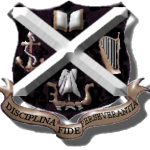About Religious, Moral and Philosophical Studies
You can be a sceptic, agnostic, atheist or theist and still have your own moral beliefs.
This has proven to be true in our Higher, National and core classes for many years. Discussion between different belief and philosophical back grounds has taken place in a safe environment where all pupils are encouraged to listen and also to participate in healthy debate when looking at ethical issues.
Our world is changing at a rate faster than humanity can keep up with. Nuclear weapons were invented and used before humanity understood the implications of generational mutation through radiation. We have cloned sheep and vegetables and leave the thinking to experts as to what is the right and moral choices to make. We have introduced GMO crops without understanding the consequences to the bee population. We are looking at implementing fracking with more consideration of profit than environmental impact. In the immediate future humanity will be thinking of the ethical implications of nano technology in medicine and artificial intelligence in our military or whether we want to be augmented humans who can upload data directly into their person.
We need to get young people thinking about these issues now and train up the next generation of ethicists and philosophers who will have an understanding of applied ethics in relation to new technologies, modes of warfare as well as medical and business practices. Pupils can learn religious and non-religious frameworks from which to address a variety of issues.
In an article on preparing for Jobs that don’t yet exist, 14 essential and valued skills were identified. RMPS as a subject addesses and provides two of these skills:
11. Ethicists – There will be an ever-growing demand for people who can ask the tough question and standards to apply moral decency to some increasingly complex situations.
12. Philosophers – With companies in a constant battle over “my-brain-is-bigger-that-your-brain,” it becomes the overarching philosophy that wins the day.
– See more at: 162 Future Jobs: Preparing for Jobs that Don’t Yet Exist
Departmental Vision Statement
‘Respect the planet and each other.’
‘Our vision is to develop sustainable attitudes by exploration of nature, faith and humanity, thereby providing hope for a shared future on a shared planet.’
RMPS BGE course outline
Time allocation: two periods a week in S1 and one period a week in S2 & 3 with a 20 week rota with PSE in S4.
S1
Examining the roots of ideas: Creation stories and myths.
Examining the roots of religion: Cro-magnon people and ancient Mesopotamia.
Examining the roots of moral tales: Fables, parables and myths.
Examining the roots of traditions: The Pagan Calendar and Hogmanay.
Identifying virtues and values: Scottish values and our values.
Values in action: The Hiding Place story, Father Damien, Show Racism the Red Card National Anti-Racist Competition.
Christianity Studies: Beliefs, practices and values including the Christmas and Easter Experiences.
Multicultural studies Part 1: Choice of a religious culture’s – beliefs, practices and values. Students choose from Buddhism, Islam, Sikhism, Hinduism and Judaism.
Ultimate Questions part one: What do I believe?
S2
Multicultural studies Part 2: Choice of one other religious culture – beliefs, practices and values. Students choose from Buddhism, Islam, Sikhism, Hinduism and Judaism.
Ultimate Questions part two: The Human Condition, Belief and Science, The Environment.
Christians in Action: David Wilkerson – Teen Challenge – Crime and Punishment
Ultimate Questions part three: Is there life after death?
S3
S3 BGE Core RME Coursework
Topic One: One Scotland many cultures
Understanding the multi-cultural, multi-faith dimension of Modern Scotland.
Understanding the reasons for immigration to Scotland.
Discussing the issues of prejudice S3 pupils may face in their life. (Bullying, not respected by some adults, pupils with disability treated unfairly).
Learning from Nick Vujicic’s story (No arms, No legs) of how he overcame bullying and lack of self-worth in his life.
Examining the historical and modern moral issue of Racism. (British Empire & Slavery)
Learning from Carl Brashear’s Case study story how a non-religious person overcame the prejudice of racism and disability to live a successful fulfilled life.
Learning how his story could challenge and inspire Scottish society to act more fairly and just.
Topic Two: The five steps to Tyranny
Reflecting on how 5 basic steps in any society could lead ordinary people to become extremely cruel to others.
Topic Three: Lessons from the Holocaust
Learning about and reflecting on the 5 steps to tyranny in practice as seen in the Holocaust.
Learning from and reflecting on Wladyslaw Szpilman’s holocaust case study.
Using what we have learned from the Holocaust – express an opinion about how to make Scotland a more compassionate and just society.
S3 Elective
S3 Elective Course Outline
Unit 1: Is the supernatural real?
- The supernatural in religious writings and modern-day accounts.
- Literal and metaphorical interpretations of the supernatural in sacred scriptures.
- Humanist, philosophical and scientific views of the supernatural.
Unit 2: Religious and Secular Studies: Christianity, Islam and Humanism
- The Human Condition.
- The goals in life.
- The means to achieve these goals.
S4 Core
In S4 we cover at an introductory level, issues in religion and conflict this helps keep the pupils to understand terrorism and violence in the world today and has the added advantage of helping to + prepare pupils who end up crashing Higher RMPS in S5/S6
S5/6 Elective Core Morality in the Media
In S5/6 we watch, analyse, discuss and reflect upon issues in movies and other media. Issue we have covered are, Social Rebellion, Social Greed in Society, The Nature Nurture debate, Character building through challenging life circumstances. Issues we will be adding are, the ethics of Artificial Intelligence.
Senior Phase Information
National 4/5 RMPS Course Specifications
World Religion: Christianity
- Nature of God
- Humans created in God’s likeness
- Free will
- Sin
- Jesus as an incarnation of God
- Death and resurrection of Jesus
- Judgement
- Heaven and Hell
- Following Jesus’ teachings and example
- Worship
Morality and Belief: Morality and Conflict
- Conflict: causes of war, types of war, Geneva conventions, justifications
- Consequences of war: human cost, environment, economic
- Modern armaments: weapons of mass destruction, smart weapons, conventional weapons
- Alternatives to war: sanctions, diplomacy, pacifis
Religious and Philosophical Questions: Miracles
• divine intervention
• fixed laws of nature
• scriptural miracles
– literal and non-literal explanations
– miracles in nature
– healing miracles
– view that sees a role for religious explanations only
– view that sees a role for scientific explanations only
– view that sees a role for both religious and scientific explanations
• non-scriptural miracles
– religious and non-religious explanations
– miracles in nature
– healing miracles
– view that sees a role for religious explanations only
– view that sees a role for scientific explanations only
– view that sees a role for both religious and scientific explanations
Higher RMPS Course Specifications
Morality & Belief for Higher RMPS, Joe Walker
CfE Higher Religious, Moral & Philosophical Studies Grade Booster, David Jack
Higher RMPS: Religious & Philosophical Questions, Joe Walker
Important Deadlines
| 17 November 2017 | S5/6 Higher Unit World Religion Islam NAB |
| 06 December 2017 | S5/6 Higher Unit Morality and Conflict NAB |
| January 2018 | S4/5/6 Nat 5/Higher Prelims |
| March 2018 | S5/6 Higher Unit Religious, Moral and Philosophical Questions: Origins NAB |
Important Links
Other Information
Extra Support available Monday – Friday at lunchtimes and also after school by arrangement with teacher.
Staff
Mr G Porter – Head of RMPS and Geography Departments
Mr Porter has over many years specialised in religions and philosophy. He is currently continuing his studies in a value based behaviour system and has just been made a Scholar of the Farmington Institute, Harris Manchester College, Oxford.
Mr J McCready – RMPS & John Muir Outdoor Education Teacher
Mr McCready has over many years specialised in the subject areas of Judaism and the Holocaust. He is currently interested in religion and conflict with the issues it raises and futuristic ethical issues such as artificial intelligence and nano technology. For more information about his John Muir Award look here.
Resources
http://www.sqa.org.uk/sqa/47911.html
http://www.bbc.co.uk/religion/0/
http://www.bbc.co.uk/ethics/guide/
http://www.dummies.com/how-to/content/exploring-religious-ethics-in-daily-life.html
The Life Of Muhammad (BBC Documentary)
https://www.youtube.com/watch?v=wwrBQzhoS6k
Religious, Moral and Philosophical Studies
About Religious, Moral and Philosophical Studies You can be a sceptic, agnostic, atheist or theist and still have your own moral beliefs. This has proven

